Kia Ceed vs Toyota Aygo – Differences & prices compared
Compare performance, boot space, consumption and price in one view.
Find out now: which car is the better choice for you – Kia Ceed or Toyota Aygo?
The Kia Ceed (Hatchback) comes with a Petrol or Petrol MHEV engine and Manuel or Automatic transmission. In comparison, the Toyota Aygo (SUV) features a Petrol engine with Manuel or Automatic transmission.
When it comes to boot capacity, the Kia Ceed offers 395 L, while the Toyota Aygo provides 231 L – depending on how much space you need. If you’re looking for more power, decide whether the 140 HP of the Kia Ceed or the 72 HP of the Toyota Aygo suits your needs better.
In terms of consumption, the values are 6 L per 100 km for the Kia Ceed, and 4.80 L for the Toyota Aygo.
Price-wise, the Kia Ceed starts at 23500 £, while the Toyota Aygo is available from 15500 £. Compare all the details and find out which model fits your lifestyle best!
Kia Ceed
The Kia Ceed stands out in the compact car segment with its sleek design and impressive handling. It offers a comfortable and well-equipped interior that appeals to both drivers and passengers. With its efficient engine options, the Ceed provides a smooth and enjoyable driving experience suitable for city commutes and longer journeys alike.
details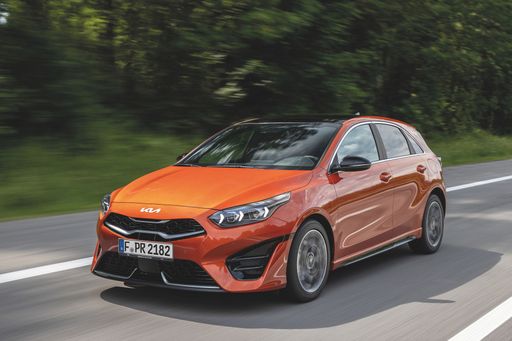 @ press.kia.com
@ press.kia.com
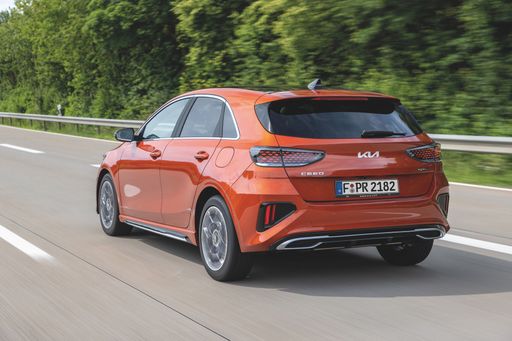 @ press.kia.com
@ press.kia.com
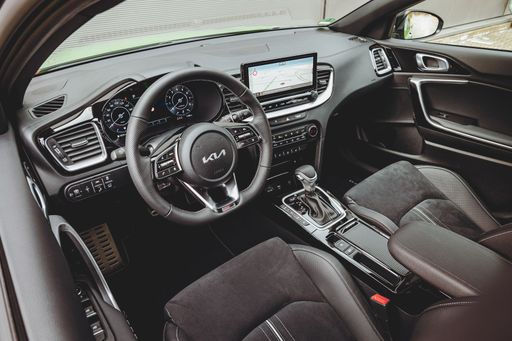 @ press.kia.com
@ press.kia.com
Toyota Aygo
The Toyota Aygo presents itself as a compact city car, perfect for navigating tight urban spaces with ease. Its stylish design is complemented by a vibrant variety of colour options, making it a standout choice for those looking to express their individuality. Inside, the Aygo offers a comfortable and functional cabin, equipped with modern features that enhance the overall driving experience.
details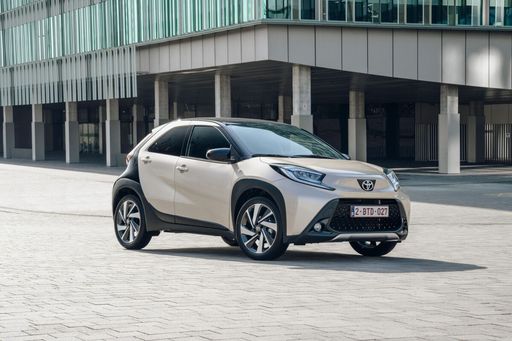 @ Toyota
@ Toyota
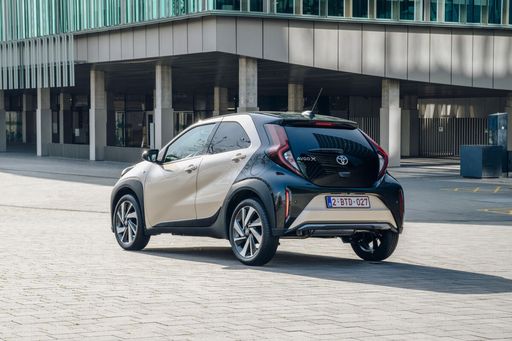 @ Toyota
@ Toyota
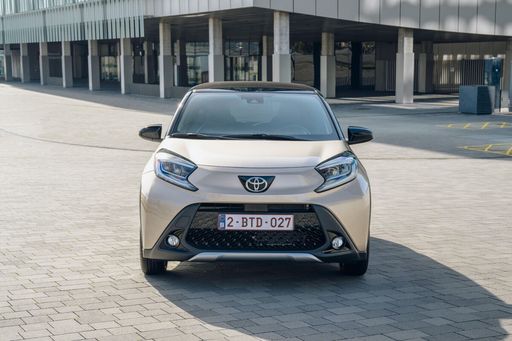 @ Toyota
@ Toyota
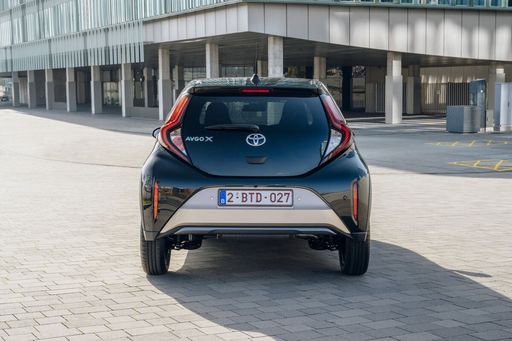 @ Toyota
@ Toyota
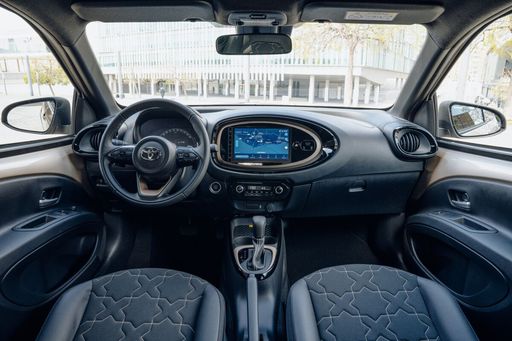 @ Toyota
@ Toyota
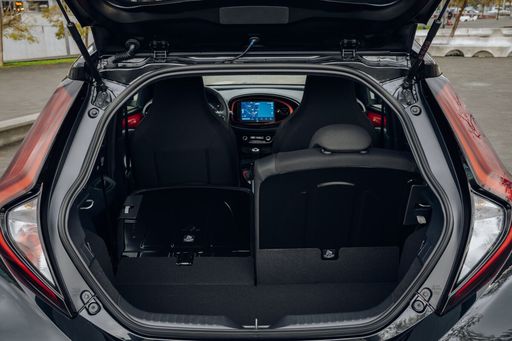 @ Toyota
@ Toyota

|

|
|
|
|
Costs and Consumption |
|
|---|---|
|
Price
23500 - 26300 £
|
Price
15500 - 22100 £
|
|
Consumption L/100km
6 - 6.4 L
|
Consumption L/100km
4.8 - 4.9 L
|
|
Consumption kWh/100km
-
|
Consumption kWh/100km
-
|
|
Electric Range
-
|
Electric Range
-
|
|
Battery Capacity
-
|
Battery Capacity
-
|
|
co2
137 - 146 g/km
|
co2
108 - 111 g/km
|
|
Fuel tank capacity
50 L
|
Fuel tank capacity
35 L
|
Dimensions and Body |
|
|---|---|
|
Body Type
Hatchback
|
Body Type
SUV
|
|
Seats
5
|
Seats
4
|
|
Doors
5
|
Doors
5
|
|
Curb weight
1298 - 1372 kg
|
Curb weight
1015 kg
|
|
Trunk capacity
357 - 395 L
|
Trunk capacity
231 L
|
|
Length
4315 mm
|
Length
3700 mm
|
|
Width
1800 mm
|
Width
1740 mm
|
|
Height
1447 mm
|
Height
1510 mm
|
|
Payload
478 - 490 kg
|
Payload
345 kg
|
Engine and Performance |
|
|---|---|
|
Engine Type
Petrol, Petrol MHEV
|
Engine Type
Petrol
|
|
Transmission
Manuel, Automatic
|
Transmission
Manuel, Automatic
|
|
Transmission Detail
Manual Gearbox, Dual-Clutch Automatic
|
Transmission Detail
Manual Gearbox, CVT
|
|
Drive Type
Front-Wheel Drive
|
Drive Type
Front-Wheel Drive
|
|
Power HP
100 - 140 HP
|
Power HP
72 HP
|
|
Acceleration 0-100km/h
9.5 - 13.2 s
|
Acceleration 0-100km/h
15.5 - 15.6 s
|
|
Max Speed
178 - 197 km/h
|
Max Speed
151 - 158 km/h
|
|
Torque
172 - 253 Nm
|
Torque
93 Nm
|
|
Number of Cylinders
3 - 4
|
Number of Cylinders
3
|
|
Power kW
74 - 103 kW
|
Power kW
53 kW
|
|
Engine capacity
998 - 1482 cm3
|
Engine capacity
998 cm3
|
General |
|
|---|---|
|
Model Year
2024
|
Model Year
2024 - 2025
|
|
CO2 Efficiency Class
E
|
CO2 Efficiency Class
C
|
|
Brand
Kia
|
Brand
Toyota
|
Kia Ceed
Discovering the Kia Ceed: A Symbol of Modernity
In the dynamic world of automotive engineering, Kia has consistently stood out with its innovative and reliable models. The Kia Ceed is no exception, bringing a blend of efficiency, style, and cutting-edge technology to the table. Let's delve into the details of this eye-catching hatchback and uncover what makes it an alluring choice for modern drivers.
Power and Performance: Under the Hood
The Kia Ceed is equipped with an impressive range of powertrains, offering a selection between petrol engines and mild-hybrid technology. The engine lineup boasts power outputs from 100 to 140 PS, catering to both economical driving needs and those seeking a bit more thrill on the road. The engine choices are complemented by either a smooth manual transmission or a state-of-the-art dual-clutch automatic, ensuring an engaging driving experience tailored to individual preferences.
Efficient and Eco-Friendly Engineering
Kia's dedication to eco-friendliness is evident in the Ceed's engineering, offering remarkable fuel efficiency between 6 to 6.4 L/100km. This focus not only keeps running costs low but also helps reduce emissions, maintaining a responsible footprint with CO2 emissions ranging from 137 to 146 g/km. This efficient performance ensures the Kia Ceed is both a financially savvy and environmentally considerate choice.
Advanced Technologies and Safety Features
Innovation is at the heart of the Kia Ceed's design, with a suite of advanced technological features enhancing comfort and safety. The latest driver-assist systems help keep occupants secure, providing confidence on every journey. Lane Keeping Assist, Forward Collision Warning, and Intelligent Speed Limit Assist are just some of the high-tech features that work seamlessly in the background, making driving both safer and more relaxed.
Styling and Comfort: A Perfect Cabin Space
Stepping into the Kia Ceed, drivers and passengers are greeted by a sophisticated interior, designed for comfort and style. Seen in multiple variants including the Nightline Edition and GT Line, the Ceed offers a premium feel across all its models. With dimensions that promise ample space—stretching up to 4325 mm in length and offering a boot capacity between 357 to 395 L—the Ceed perfectly accommodates both daily commutes and adventurous getaways.
Value for Money: A Wise Investment
Balancing a competitive initial outlay, ranging from €25,590 to €35,090, with low running costs, the Kia Ceed redefines value for money. This hatchback's adaptability to various lifestyle needs, paired with monthly costs from €887 to €1,019, positions it as a wise investment in the current automotive market.
Conclusion: The Kia Ceed in a Nutshell
The 2024 Kia Ceed superbly combines power, efficiency, and cutting-edge innovations, making it a noteworthy contender in the hatchback segment. Whether it’s the eco-friendly credentials, advanced safety systems, or the blend of practicality and style, the Kia Ceed is primed to lead the way in the evolving era of modern vehicles.
Toyota Aygo
The Urban Maverick: Exploring the Toyota Aygo
The Toyota Aygo has long been a favourite for city dwellers and those who appreciate a compact yet stylish vehicle. With its latest iterations, the Aygo promises to deliver a blend of efficiency, modernity, and cutting-edge technology. Let's take a closer look at what this impressive vehicle has to offer.
Under the Bonnet: Technical Specifications
At the heart of the Toyota Aygo is a 1.0-litre three-cylinder engine. This petrol-powered engine is capable of producing 72 PS (53 kW) and offers a maximum torque of 93 Nm. The efficient engine achieves a fuel consumption of just 4.8 to 4.9 L/100km, making it an economical choice for urban commuting. The car features a front-wheel-drive layout and is available with either a manual transmission or a CVT automatic gearbox, providing flexibility for various driving preferences.
Performance on the Road
Despite its compact size, the Toyota Aygo offers a respectable acceleration from 0 to 100 km/h in just 15.5 to 15.6 seconds, with a top speed ranging between 151 and 158 km/h. This makes it well-suited for both city driving and highway cruising. The car's lightweight design of 1,015 kg ensures nimble handling and manoeuvrability in tight urban environments.
Design and Dimensions
The Aygo's contemporary exterior design is both attractive and functional. It measures 3,700 mm in length, 1,740 mm in width, and 1,510 mm in height, offering a compact footprint without sacrificing interior space. With five doors and four seats, the Aygo is practical for everyday use. The vehicle provides a boot space of 231 litres, ensuring you have enough room for groceries and luggage on the go.
Innovation and Features
The Toyota Aygo is equipped with a range of innovative features, enhancing the driving experience. Available in several trim levels including Business Edition, Explore, and Style, each comes with its own unique set of features. Standard offerings across trims include advanced safety features, a modern infotainment system, and optional extras such as climate control and advanced connectivity options.
Environmental Considerations and Efficiency
In line with environmental consciousness, the Toyota Aygo carries a CO2 efficiency class of C, with emissions ranging from 108 to 112 g/km. This ensures that the vehicle not only provides an efficient driving experience but also minimises its environmental impact. Additionally, the running costs are attractive, with estimated costs per kilometre between 27.4 and 31.3 cents, and monthly costs ranging from €685 to €783.
Pricing and Market Appeal
The Toyota Aygo is positioned competitively within the market, with pricing starting from €17,550 and reaching up to €23,950, depending on the selected trim and options. Its affordability, combined with its efficient performance and modern features, makes it an appealing choice for a wide range of buyers, particularly those seeking a reliable and economical vehicle for urban environments.
In conclusion, the Toyota Aygo stands out as a versatile and stylish city car that combines practicality with a touch of sophistication. Whether you're navigating busy urban streets or cruising on the motorway, the Aygo is well-equipped to handle the journey with ease and efficiency.
Which drive types are available for the Kia Ceed?
Available as Front-Wheel Drive.
The prices and data displayed are estimates based on German list prices and may vary by country. This information is not legally binding.
